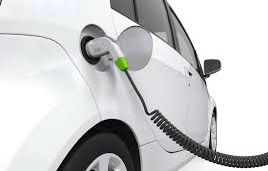India today stands at the cusp of becoming a world leader in the field of electric vehicles and an integrated approach for developing indigenous fuel cells can fast help the country eclipse China which dominates the sector
Chairing a meeting of government agencies and representatives from various research institutions, Union Minister for Road Transport, Highways and MSMEs Nitin Gadkari urged scientists, academia and industry to harness hydrogen-based energy as it is not only cost effective but also easily available in the country. He indicated towards the lowering costs of solar power in India, which can help energise other modes of fuels.
The minister informed that with nearly 81 per cent of Li-ion battery components available locally, India stands a very good chance for value addition at lower costs which would also result in a large scale employment generation. Reacting to the presentations made for different technologies including Li-ion, metal-ion, Sodium Sulphur, Hydrogen, Iron Sulphur, Polymer Electrolyte Membrane Cell System, ZincGel, etc, Gadkari said that economic viability is the basis of any successful technology.
There is vast scope in the area of Lithium-ion batteries too as India’s mining entities could look for acquiring component assets globally and grab the opportunity to push China behind. Gadkari indicated towards the growing pace of the automobile industry which has a turnover of Rs 4.5 lakh crore at present and is set to reach Rs 10 lakh crore very soon. He also said that initially one crore vehicles will go for scrapping under the new vehicle scrapping policy which will result in availability of cheaper aluminium, copper, rubber, steel and other products. This, he said, will have the potential to reduce the price of battery components.
The next generation batteries will not only minimise vehicular pollution but also make India a global supplier of EVs.
NITI Ayog CEO Amitabh Kant stressed upon concentrating on lithium-ion alternative batteries and supported the idea of mining companies exploring opportunities abroad for acquiring assets in this regard. He said that NITI Ayog has collaborated with four IITs including Guwahati and Delhi for research in aluminium-ion batteries.




















